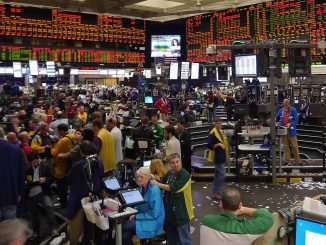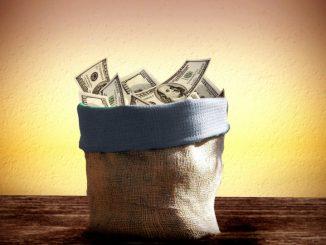
Will the stock market collapse? The answer is “yes”, because this is simply how things work, and eventually the tendency is to drop.
Can you tell when exactly will it collapse? The answer is “no”. No one knows when the market will crash.
According to the US Geological Survey, major earthquakes (between 7.0 and 7.9) occur slightly more than once a month. Major earthquakes (magnitude 8.0 and above) were seen almost once a year, on average. Seismologists can use historical statistics to understand patterns of these natural disasters but do not occur in a specific timeline. Even with advances in geological technology, it is still impossible for experts in the field to predict exactly when the next big field will hit.
The same is true for the next stock market crash. But even the use of historical patterns does not provide much clarity because there are few reasons in the market environment when a crash occurs. Here’s a look at a variety of market variables just before each bear market since World War II:
Investors now hope that the low valuation and high returns seen at previous summits in the late 1940s, mid 1970s or early 1980s will return. This was not important at the time and stocks continue to fall significantly in each of these cases.
The S&P 500 looked at bear markets of high valuations, lower valuations, higher interest rates, lower interest rates, higher inflation, lower inflation and everything in between. Fundamentals may help investors set reasonable long-term expectations but they don’t tell you what will happen to stocks in the short to medium term.
Over the past two decades the S&P 500 has halved twice, leading many investors to believe that all bear market will lead to a complete collapse. This is always a possibility but there is nothing written about it and no law says that every peak of the market will lead to complete collapse.
After the apocalyptic market crash during the Great Depression that saw the market drop by 85%, stocks crashed 50% later starting in 1937. But then something funny happened. There was no refraction for nearly 40 years after those calamities.
From 1938-1972 the average bear market for the S&P 500 saw a decline in stocks by -27.4%. The worst decline began at this time in 1968, which was the end of the good years and the bull market Nifty-Fifty. But there were no signs of a crash over this entire period. This line was finally broken in 1973-1974 when stocks fell nearly 50%. This did not happen again until the bubble burst in 2000.
Market breakdowns are always a possibility but there is also a run for bear markets where markets are located but don’t get the jump altogether.
The human element
Calculating any number of up-to-the-minute fundamental ratios is easy these days because market data is everywhere. However, just knowing the basics will not offer an advantage in the markets because the numbers do not take into account the human factor. We can measure the price ratios of past and current profits but not what prices investors will be willing to pay for those profits in the future.
In the absence of a clear vision, here are some ways to prepare for the inevitability of market failure:
You don’t want to go about re-calibrating your risk tolerance during bear markets because emotions work a lot at that point.
Do not hold more stocks in the bull market than you would even during the bear market. The reason why it is called market crash is because it can happen quickly and without warning. Everyone assumes that they will be able to jump off the train before the tracks explode. Always invest on your own and try not to be one of these people.
Keep enough assets in cash, bonds, or other liquid securities in case of a sudden market crash. The average bear market has continued since World War II for more than a year from peak to getting through. To take advantage of these times when stocks go on sale you must have liquid reserves in cash forms or high quality bonds to take advantage of them.
Humans are prone to taking extreme actions in both directions, but this does not help to predict how far we will collectively be able to take things during a market collapse. Many know that there will be another market crash at some point. It is something that all investors must be prepared for mentally. The hard part is knowing when it will be.




Be the first to comment